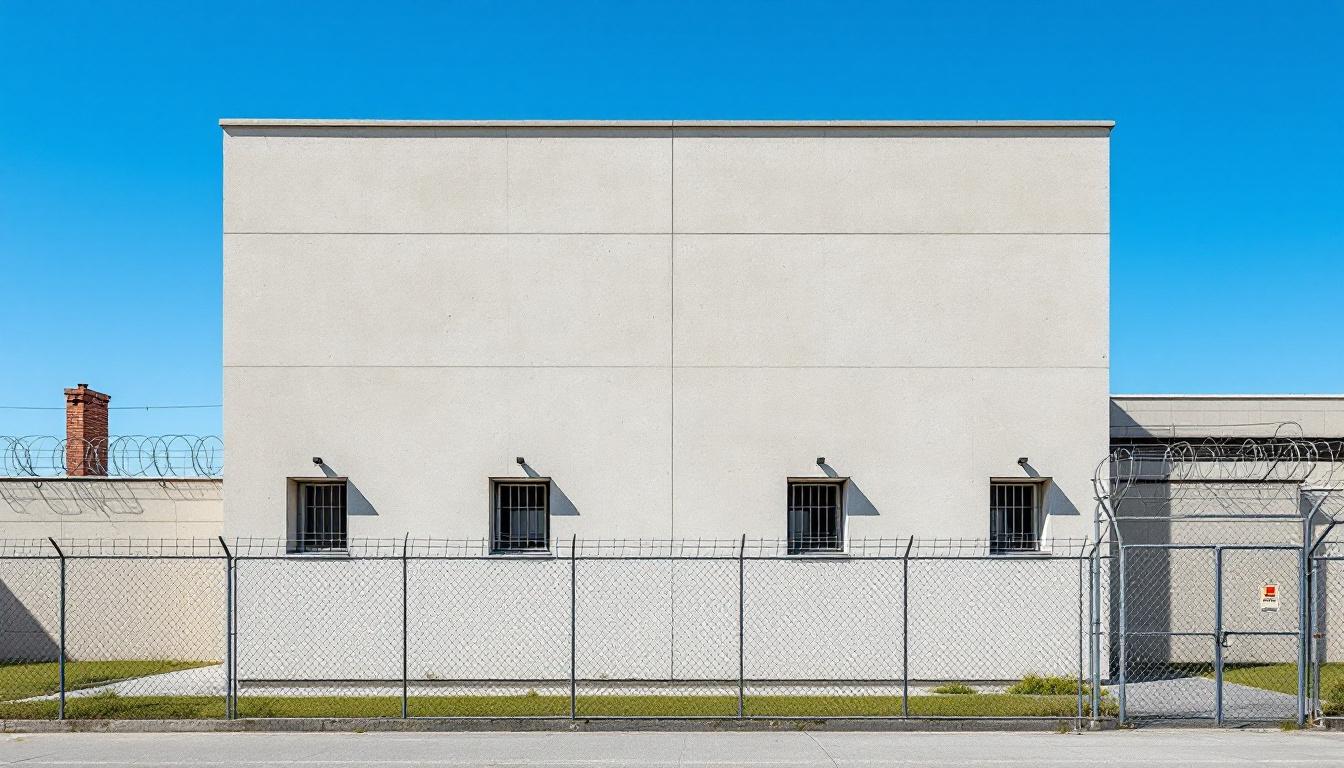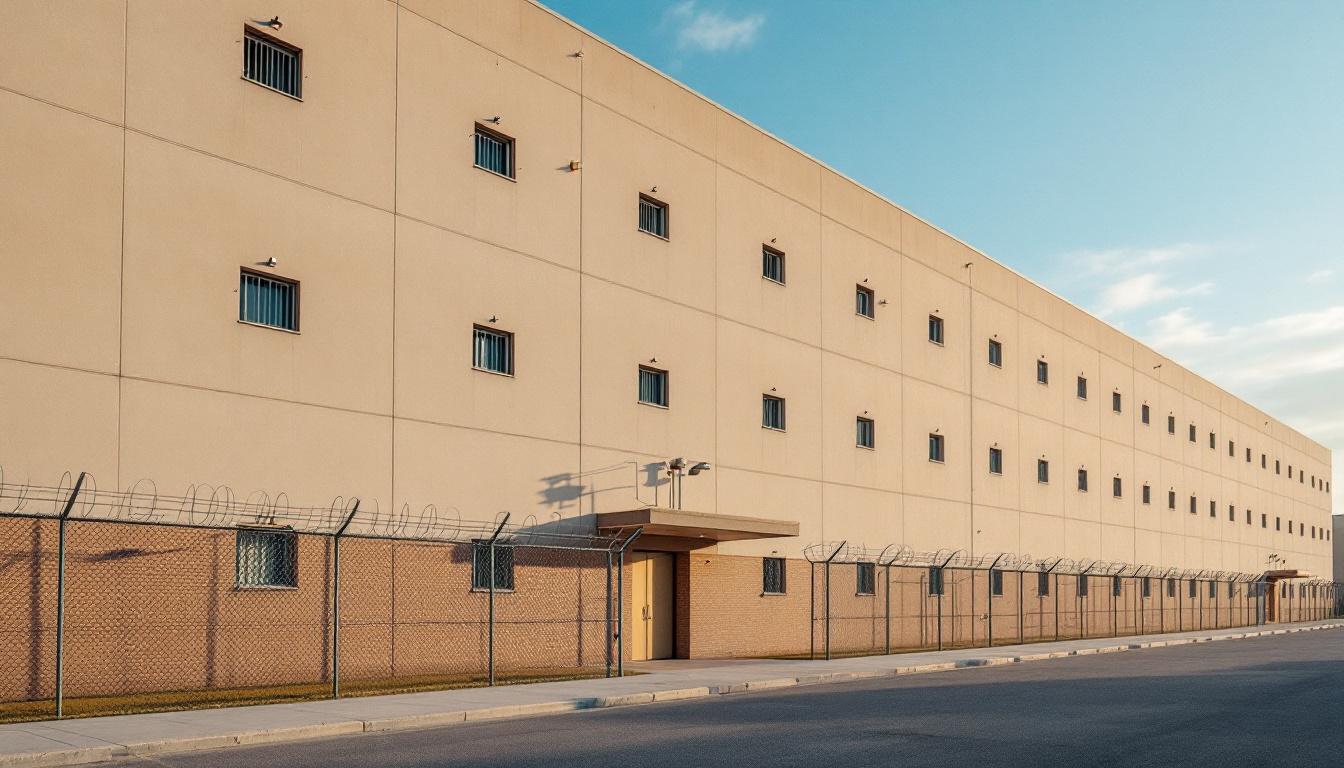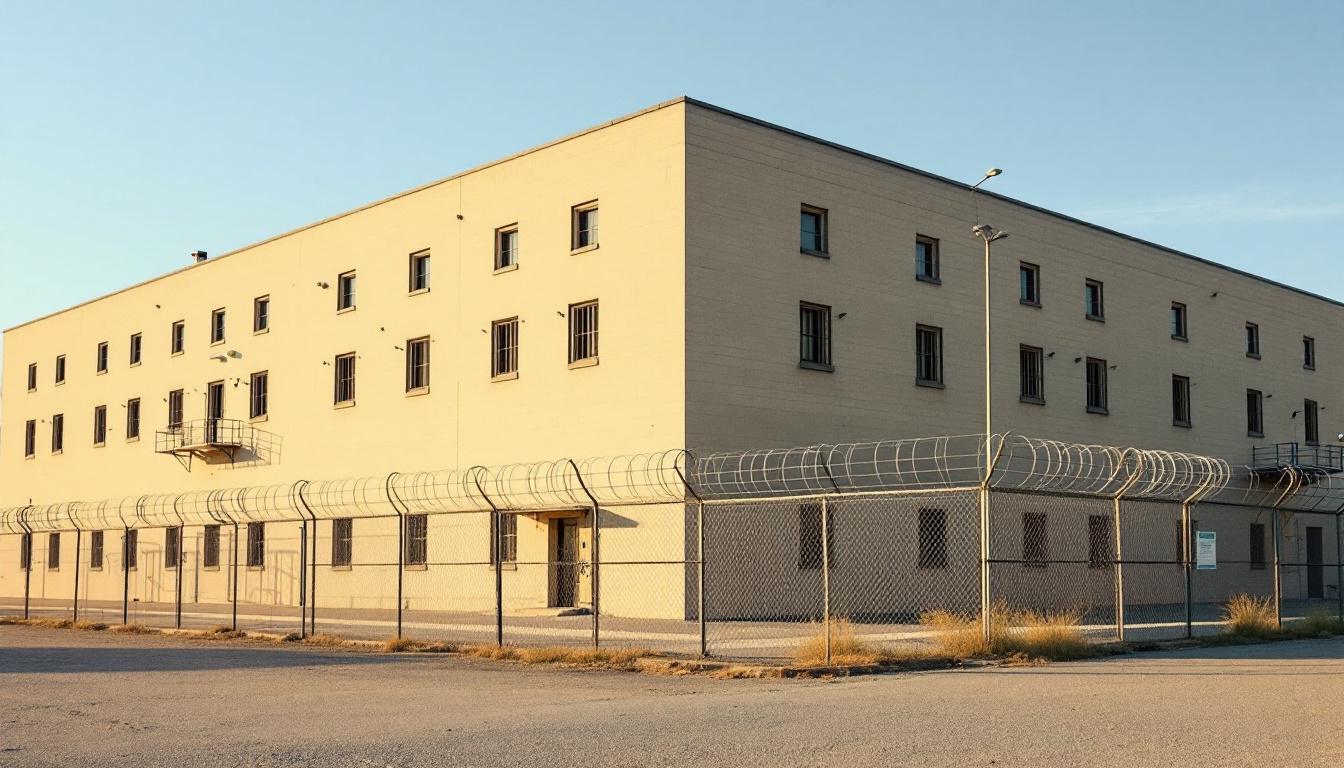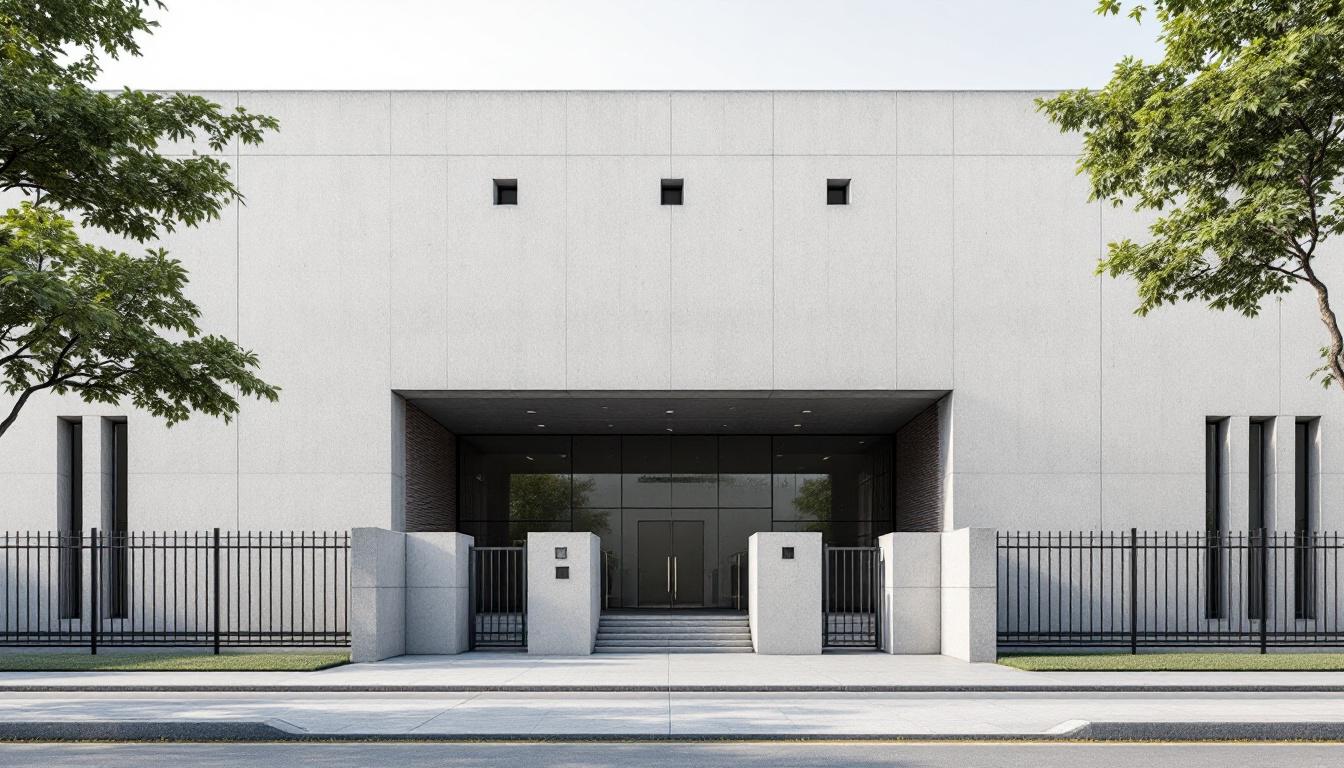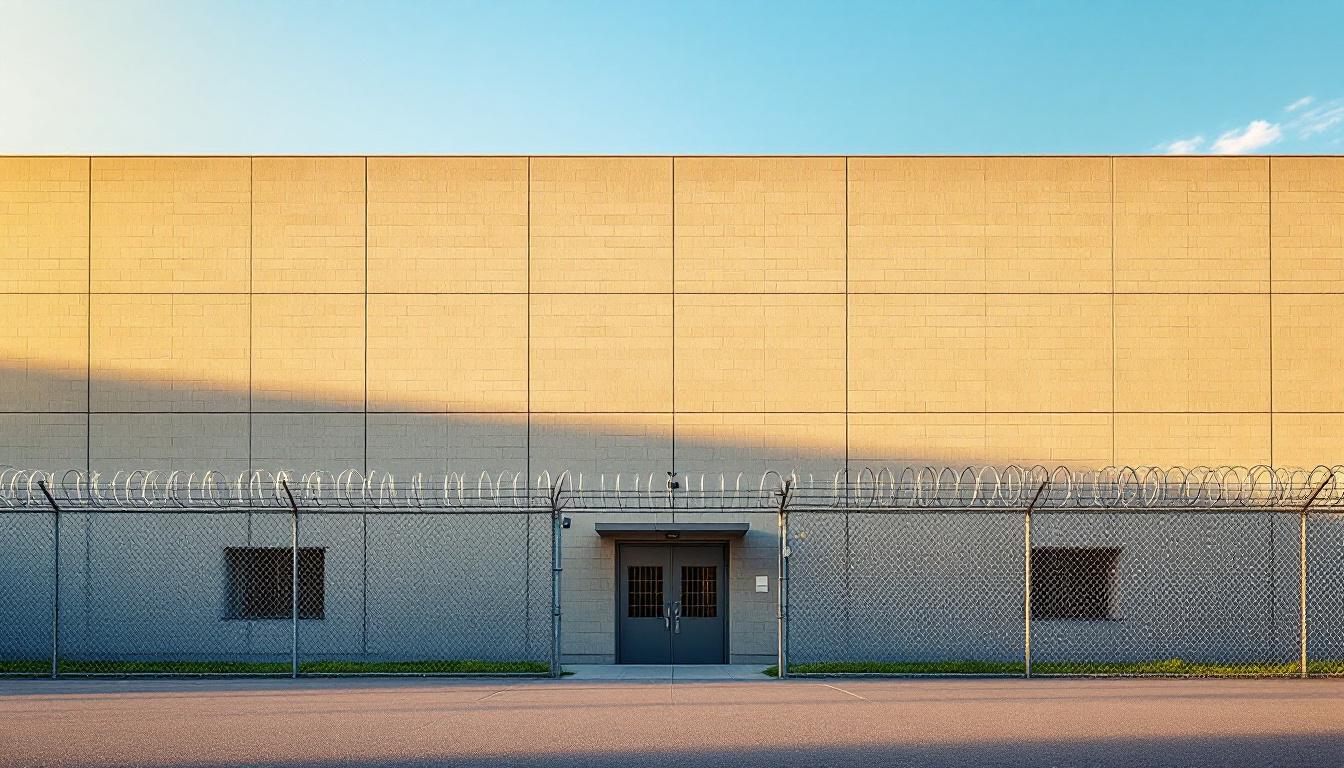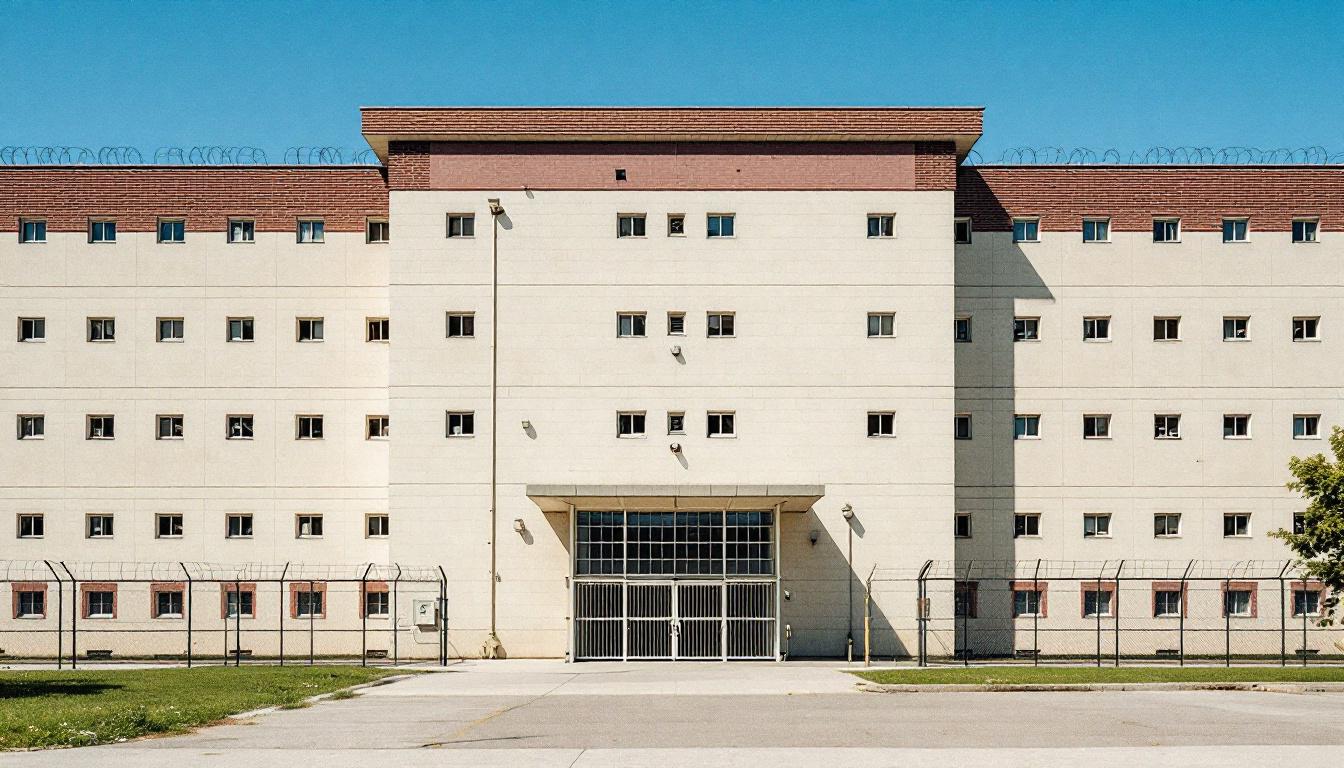
Quick Navigation
How to contact an inmate at Madison County Sheriff's Department
This comprehensive guide will walk you through how to connect with an inmate at Madison County Sheriff's Department. Follow the steps below to find an inmate and send letters and photos:
- Search for the inmate using our search tool below
- Create your account or log in to Penmate
- Write your message (up to 6,000 characters)
- Send instantly - inmates receive printed copies daily
Find an Inmate
Search for an inmate to start communicating today
Tip: You can search by first name, last name, or inmate ID number
To contact a person at Madison County Sheriff's Department start by searching for the person on the official facility website. Perform a search by following these steps:
- Step 1: Enter their first name and last name into the search form and click "Search"
- Step 2: Locate their inmate record
- Step 3: Write down their Inmate ID and any housing information provided
Important! Be sure to enter the person's full name. Nicknames should not be used.
How to Send Messages to Inmates

You can use your phone or computer to send emails, letters, and photos to an inmate. Messages are sent electronically to inmate tablets or kiosks at the facility. If you would like to send a message, start by searching for an inmate at Madison County Sheriff's Department.
Sending Photos and Postcards

A great way to send love and support to a loved one at Madison County Sheriff's Department is to send photos and postcards. It only takes a few minutes to send photos from your phone and it makes a huge difference. You can also mail postcards with words of support and inspiration, or design your own postcard for special moments like birthdays and holidays.
Important! Be sure not to send any explicit photos or they may not be approved by the facility. You can also use a photo printing app like Penmate to make sure your photos are printed at the correct size (4x6 or 3x5) and are mailed according to the rules and regulations of Madison County Sheriff's Department.
Frequently asked questions about Madison County Sheriff's Department
-
How long does it take to deliver a message?
If you're sending an email message your letter is usually delivered within 24-48 hours. For messages sent via mail you should expect delivery within 3-7 days. All messages will need be approved by Madison County Sheriff's Department.
-
How much does it cost to send a message to Madison County Sheriff's Department?
You can send a message free using your phone or mail a message via USPS for the price of a $0.60 stamp and envelope. You can also purchase credits or e-stamps from services starting at $1.99.
-
What services can I use to contact an inmate at Madison County Sheriff's Department?
Penmate
You can use Penmate to send letters and photos to an inmate from your phone. It's an easy way to stay in touch during your loved one's incarceration. Use the inmate locator to find an inmate's location and contact information, then you can send messages within a few minutes.
Securus messaging
Securus may be another option for communicating with an inmate at Madison County Sheriff's Department. You can create a friends and family account and purchase credits to send messages. All messages will be reviewed and must be approved by the facility.
JPay
Some county jails and state prisons may support sending messages with JPay. You must register an account with the system, find your loved one, and purchase stamps to send messages. For some locations you can also attach photos.
Smart Jail Mail
You may also check if Smart Jail Mail is available at Madison County Sheriff's Department. Smart Jail Mail is operated by Smart Communications and has contracted with some state and county jails. After purchasing credits, your messages and photos are sent to the facility, printed out, and then handed out to your loved one.
-
What is the mailing address of Madison County Sheriff's Department?
Mailing address:
Madison County Sheriff's Department
405 Randle St
Edwardsville, IL 62025
Phone: (618) 692-6087 -
What are the visiting hours at Madison County Sheriff's Department?
Visiting hours at Madison County Sheriff's Department vary by housing unit and security level. Generally, visits are scheduled on weekends and holidays, with some facilities offering weekday visits. Contact the facility directly at (618) 692-6087 or check their website for the current visiting schedule. Visits typically last 30-60 minutes and must be scheduled in advance.
-
What items are prohibited when sending mail to Madison County Sheriff's Department?
Prohibited items typically include: cash, personal checks, stamps, stickers, glitter, glue, tape, staples, paperclips, polaroid photos, musical or blank greeting cards, hardcover books, magazines with staples, and any items containing metal or electronics. Only send letters on plain white paper with blue or black ink. Photos must be printed on regular photo paper (no Polaroids). Always check with Madison County Sheriff's Department for their specific mail policies.
-
How do I send money to an inmate at Madison County Sheriff's Department?
You can send money to an inmate at Madison County Sheriff's Department through several methods: 1) Online using JPay, Access Corrections, or the facility's approved vendor, 2) Money orders mailed directly to the facility with the inmate's name and ID number, 3) Kiosks located in the facility lobby, or 4) Over the phone using a credit or debit card. Fees vary by method, typically ranging from $2.95 to $11.95 per transaction.
-
Can I schedule a video visit with an inmate at Madison County Sheriff's Department?
Many facilities now offer video visitation as an alternative to in-person visits. At Madison County Sheriff's Department, video visits may be available through services like Penmate, Securus Video Connect, GTL, or ICSolutions. Video visits typically cost $10-20 for 20-30 minutes and must be scheduled in advance. You'll need a computer or smartphone with a camera and reliable internet connection. Contact the facility for their specific video visitation policies and approved vendors.
-
What identification do I need to visit an inmate at Madison County Sheriff's Department?
All visitors must present valid government-issued photo identification such as a driver's license, state ID, passport, or military ID. Minors must be accompanied by a parent or legal guardian who can provide the minor's birth certificate. Some facilities require visitors to be on the inmate's approved visitation list, which may require a background check. Contact Madison County Sheriff's Department for specific ID requirements and visitor approval procedures.
-
How can I find out an inmate's release date?
To find an inmate's release date at Madison County Sheriff's Department, you can: 1) Use the online inmate search tool if available, 2) Call the facility's records department, 3) Contact the inmate's case manager or counselor, or 4) Have the inmate provide this information during a call or visit. For privacy reasons, some facilities only release this information to immediate family members.
Facility Overview
Contact Information
Madison County Sheriff's Department405 Randle St
Edwardsville, IL 62025
Phone: (618) 692-6087
Official Website

About Madison County Sheriff's Department
Serving the community through secure detention and rehabilitation efforts, Madison County Jail operates as a cornerstone facility within Phoenix, Illinois' criminal justice framework. This IL correctional facility maintains its commitment to public safety while providing structured environments for individuals awaiting trial or serving shorter sentences within the county system.
The facility typically houses a diverse population that reflects the broader demographic makeup of Madison County, offering those incarcerated services that may include basic educational opportunities, substance abuse counseling, and vocational preparation programs. Located in Phoenix, the county jail generally provides medical care, mental health support, and religious services to address the varied needs of its residents. Staff members often work to maintain secure operations while supporting rehabilitation efforts that may help reduce recidivism rates upon release.
Madison County Jail's role extends beyond simple detention, as it frequently serves as a critical component in the region's approach to criminal justice reform and community safety. The facility typically coordinates with local courts, probation services, and community organizations to ensure smooth transitions for individuals re-entering society. Through structured daily routines and access to programming, this correctional facility aims to provide meaningful opportunities for personal growth and skill development during incarceration periods.
Programs & Services
Opportunities for personal development and skill-building form the cornerstone of Madison County Jail's approach to incarceration. The facility recognizes that meaningful change occurs when those incarcerated have access to structured programming that addresses both immediate needs and long-term goals. Through a comprehensive framework of educational, therapeutic, and vocational offerings, the jail may furnish pathways that support individual growth while maintaining the security and safety essential to the correctional environment.
Educational services typically include basic literacy instruction and GED preparation, allowing participants to build foundational academic skills within a structured setting. These programs often operate alongside vocational training opportunities that may cover practical skills such as maintenance, food service, or basic computer literacy. Moreover, reentry preparation services help those incarcerated develop essential life skills, including job search techniques, budgeting, and community resource navigation, creating bridges to successful community reintegration upon release.
The facility's therapeutic offerings often includes mental health treatment and counseling services designed to address underlying issues that may contribute to criminal behavior. Mental health professionals typically work with participants to develop coping strategies and emotional regulation skills within the secure environment. These support services may furnish both individual and group counseling sessions, creating opportunities for personal reflection and behavioral change that extend beyond the period of incarceration.
Daily Life & Visitation

Maintaining connections with family and community members forms a cornerstone of the experience for those incarcerated at Madison County Jail. Today's structured environment consistently provides opportunities for social interaction, both within the facility and with the outside world. The daily routine typically begins early in the morning with head counts and meal service, followed by scheduled programming and recreational periods that furnish stability and purpose throughout each day.
Those incarcerated generally reside in housing units that accommodate multiple individuals, fostering a community atmosphere where residents often form supportive relationships. Meals are typically served in common dining areas, creating natural opportunities for social interaction and conversation. The facility usually provides recreational activities and exercise periods that allow residents to maintain physical fitness while building connections with others. Moreover, these shared spaces often become venues where those incarcerated can discuss their experiences, offer mutual support, and maintain their social skills.
Work assignments within the facility typically include kitchen duties, cleaning responsibilities, and general maintenance tasks that help residents develop routine and contribute to the facility's daily operations. Structured programming schedules may offer educational opportunities, counseling sessions, and other activities designed to support personal development. Whereas daily life follows established routines, visitation policies generally allow family members and approved visitors to maintain regular contact through scheduled visits. Communication options typically include telephone access and mail services, enabling those incarcerated to preserve vital connections with their support networks and community ties during their time at the facility.
Ready to Connect?
Start communicating with your loved one today
Search for an Inmate

